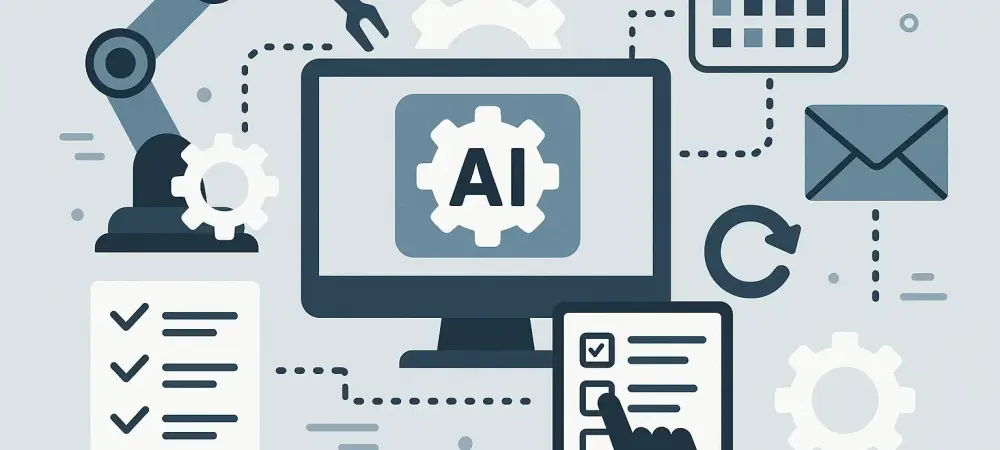OpenAI’s ChatGPT is emerging as an indispensable tool in task automation rather than solely serving as a Google alternative for information retrieval. This transition highlights OpenAI’s strategic efforts to redefine AI’s role in modern workflows. According to Sam Altman, CEO of OpenAI, ChatGPT now functions akin to an entry-level employee, adept at executing tasks like coding and conducting deep research. By leveraging its ability to access and employ user data, the AI is advancing from basic inquiries to completing intricate tasks, effectively bridging gaps in operational efficiency. This evolution underscores a paradigm shift in artificial intelligence, where AI extends its capabilities beyond conventional search functions, becoming a pivotal component in personal and professional environments.
Beyond Information Retrieval to Task Execution
AI’s Expanded Capabilities
ChatGPT’s transformation into a tool for task execution marks a significant departure from its original conception as merely a source of information. Altman points out the remarkable features that facilitate this change, including enhanced memory capacities enabling the software to recall past user interactions and preferences. Such advancements are instrumental in its development as an AI-powered personal assistant. The recent improvements through iterations like GPT-4o and O3 further empower ChatGPT to manage complex reasoning and workflows. These capabilities are not only reshaping how users interact with AI but also broadening the scope of applications where ChatGPT could be beneficial. Human oversight remains crucial, though, due to occasional hallucinated outputs and reasoning errors preventing its ideal operation without intervention.
Integrating with Business Tools
Positioning ChatGPT as a proactive assistant platform is a key objective for OpenAI. A significant effort is underway to integrate ChatGPT with existing business tools through the Model Context Protocol (MCP). These integrations aim to enhance ChatGPT’s functionality by making it a seamless part of the operational landscape in various industries, thereby increasing efficiency and effectiveness. As businesses continue to explore digital transformations, such AI integrations promise to foster innovation and streamline operations. OpenAI’s focus on such developments suggests a deliberate strategy to foster dependencies on AI assistants, which could revolutionize industries by reducing the need for traditional processes and workflows. Nonetheless, this approach necessitates a careful balance to ensure AI complements rather than entirely replaces human judgment and creativity.
Achieving Reliable Performance and Overcoming Technical Constraints
AI Tools Complementing Traditional Workflows
OpenAI emphasizes the importance of using AI like ChatGPT alongside established methods to maximize its transformative potential across sectors such as marketing, data analysis, and content creation. One aspect that stands out is AI’s ability to handle routine tasks efficiently, allowing professionals to focus on higher-level strategic activities. By integrating AI tools into daily operations, companies can enhance productivity and achieve reliable performance, which can be pivotal in gaining competitive advantages in today’s fast-paced business environment. While AI tools can expedite many processes, their deployment must be carefully managed to ensure they accurately perform tasks and provide relevant data insights without compromising on quality or reliability.
The Path Forward for ChatGPT
As advancements persist, the focus remains on overcoming challenges such as technical constraints in accurately understanding context and delivering precise outputs. By refining its algorithms and frameworks, OpenAI is working towards making AI more intuitive and effective. ChatGPT, though a potent tool, demands ongoing enhancement to address its limitations and expand its practical applications in everyday processes. Such efforts encompass not just refining computational capabilities but also improving user interfaces and experiences. Ultimately, OpenAI aims to establish ChatGPT as a cornerstone in task automation, highlighting its role in simplifying workflows while maintaining high standards of accuracy and dependability.
Looking Ahead
OpenAI underscores the significance of using AI technologies, such as ChatGPT, in tandem with traditional methods to fully realize their transformative potential across various sectors like marketing, data analysis, and content creation. A key strength of AI is its capacity to manage routine tasks efficiently, thereby freeing professionals to concentrate on strategic and innovative projects. Integrating AI tools into day-to-day operations can substantially boost productivity and ensure consistent performance, offering a significant edge in today’s rapidly evolving business landscape. While AI tools can accelerate numerous processes, it’s crucial to deploy them thoughtfully to maintain accuracy in task execution and to extract meaningful insights from data. This careful management is essential to uphold the quality and reliability of both the tasks performed and the data outcomes produced. As businesses increasingly rely on AI for competitive advantage, balancing automation with human oversight becomes vital to meet strategic goals effectively.

